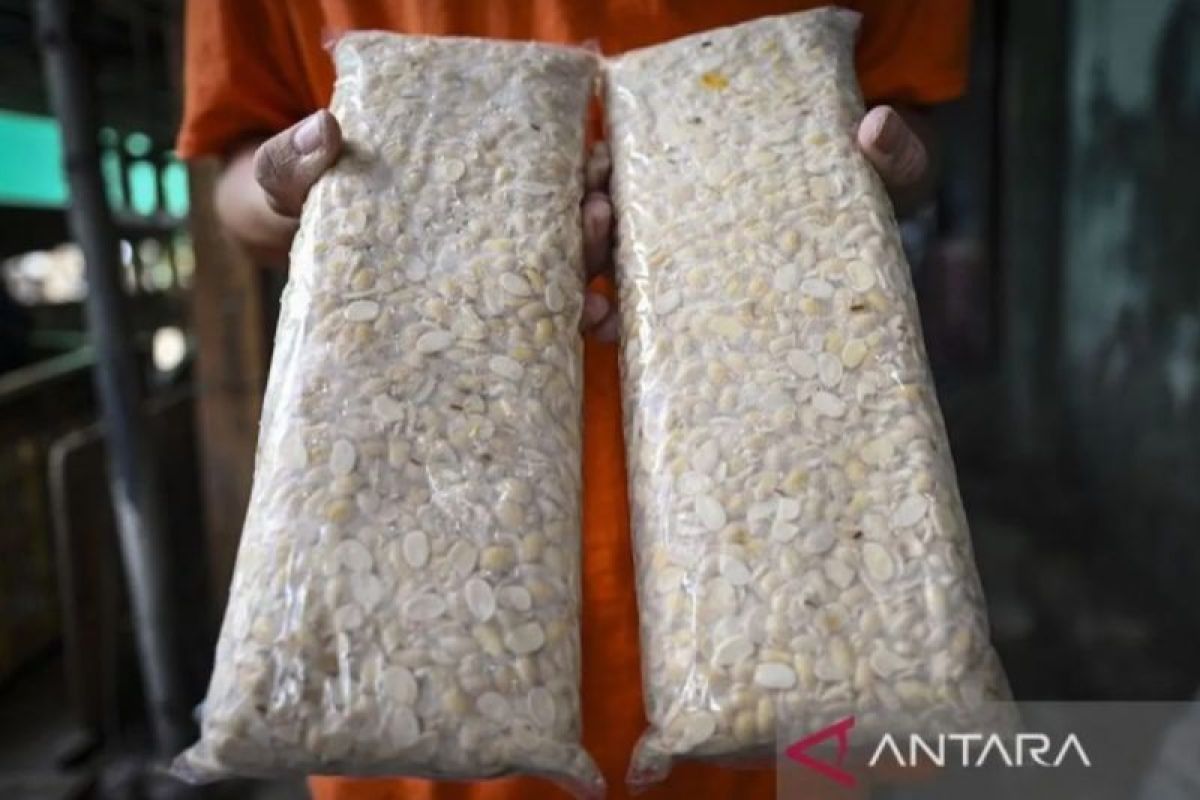As per the Javanese literary work, tempeh was a dish of the Javanese people and a part of various community rituals since the 16th century.
Based on this evidence, the Indonesian Tempe Forum and several institutions have initiated efforts to introduce tempeh to the world since 2014.
Recently, the Ministry of Education, Culture, Research, and Technology officially proposed the recognition of tempeh, an intrinsic part of Indonesian food culture, as an intangible cultural heritage by UNESCO.
The proposal was submitted at the end of March 2024 and is pending discussion by UNESCO.
"We are optimistic that the tempeh culture will be added to the list of UNESCO's intangible cultural heritage in Indonesia. We hope that the inclusion of tempeh culture in the UNESCO list can provide benefits not only for the people of Indonesia, but also the world," the ministry's director of cultural protection, Judi Wajudin, said.
The Indonesian Tempeh Forum, one of the teams that initiated the proposal, is hoping for public support so that tempeh will continue to be sustainable and known around the world.
A mentor from the forum, Made Astawan, said that tempeh is currently consumed in 27 countries.
Several studies globally have identified the health benefits of tempeh as it is made with fermented soybeans.
"Moreover, the trend of vegetarianism or veganism is also getting more popular, along with increasing awareness of healthy food in the world community," Astawan highlighted.
Tempeh is a native food of Indonesia, which is made using the traditional knowledge and techniques of the ancestors. It is nutrient-dense and offers health benefits.
"Although officially, the government has not formally determined it, but we tempeh lovers and makers have been setting June 6 as National Tempeh Day," chairperson of the Indonesian Tempeh Forum, Muslimatun, said.
He deemed it important that the culture of making and consuming tempeh be celebrated once a year, as the nation's ancestors have gifted such healthy food to society.
Food for a Golden Indonesia
The Indonesian Tempe Forum promoted tempeh as a food for supporting Indonesia's golden generation at the National Tempe Day celebration in Balikpapan, East Kalimantan, on June 6, 2024.
"Tempeh will go global soon; currently, we are launching tempeh as the food of Indonesia's golden generation in order to promote tempeh again among the younger generation," secretary general of the forum, Muhammad Ridha, said.
Meanwhile, a professor from Bogor Agricultural University (IPB), Ahmad Sulaeman, said he supports the declaration of tempeh as Indonesia's golden generation's food.
He highlighted that tempeh is rich in nutrients that are good for children's growth and development and the health of adults, including pregnant women and menopausal women.
According to research, tempeh has many health benefits because it contains bioactive components, nutrients, and vitamins that are good for the body.
"Tempeh is the only food that has plant-based protein that has the same quality as animal protein," Astawan from the Indonesian Tempeh Forum said during a workshop on tempeh.
He informed that tempeh has higher protein digestibility compared to soybeans because it has gone through many processes, such as boiling and fermentation. In fact, the vitamin content in tempeh increases during processing.
He added that tempeh has bioactive components that are not present in soybeans.
"In soybeans, there are only a few bioactive components, but a lot in tempeh. That is an advantage of bioactivity," Astawan said.
Each 100 gram sample of soybeans contains 46.5 grams of protein, 254 milligrams (mg) of calcium, 0.15 mg of riboflavin, 0.67 mg of niacin, 0.08 mg of Vitamin B6, 0.15 mg of Vitamin B12, and 34 mg of biotin, he expounded.
In comparison, each 100 gram sample of tempeh contains 50.5 grams of protein, 347 mg of calcium, 0.85 mg of riboflavin, 4.35 mg of niacin, 0.47 mg of Vitamin B6, 5 mg of Vitamin B12, and 71 mg of biotin.
"Vitamin B12 is usually sourced from animals, while tempeh is the only plant-based food that contains a significant amount of Vitamin B12. There is microbial involvement in the production of Vitamin B12," he said.
Furthermore, he opined that tempeh's nutrients are not inferior to meat. When the price of meat is high, people can choose to consume tempeh as an alternative.
A healthy generation is one of the requirements of the Golden Indonesia vision or the vision to make Indonesia an advanced nation by 2045. Tempeh consumption by Indonesians, including the young generation, could support the realization of this vision.
Related news: Tempeh proposed to be inscribed on UNESCO cultural heritage list
Related news: NFA asks Bulog to set up soybean supply system for tempeh producers
Editor: Rahmad Nasution
Copyright © ANTARA 2024












